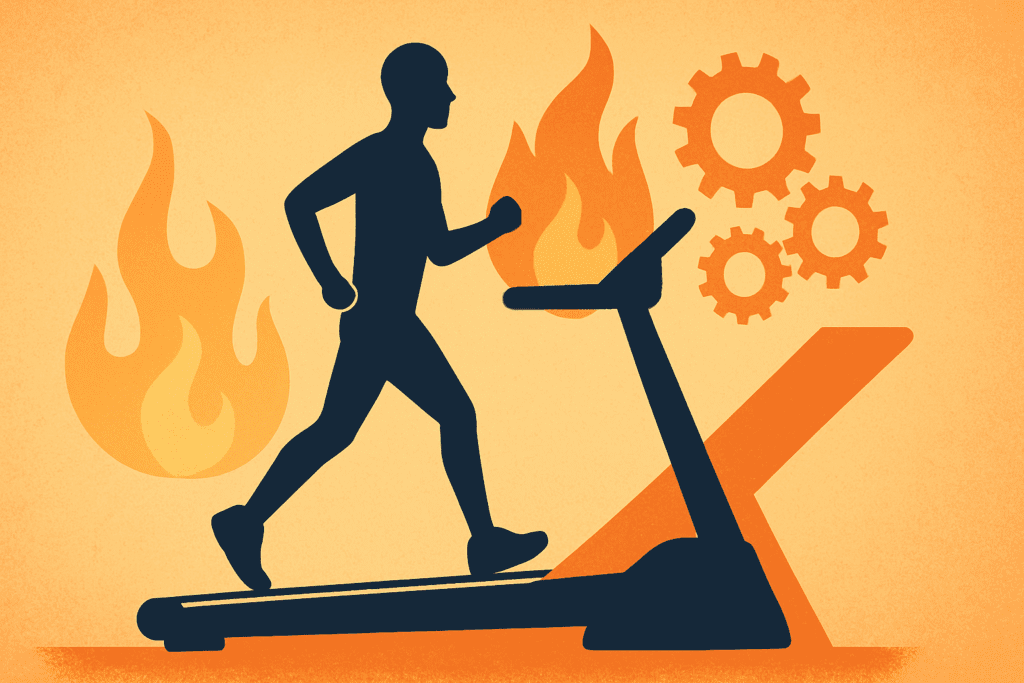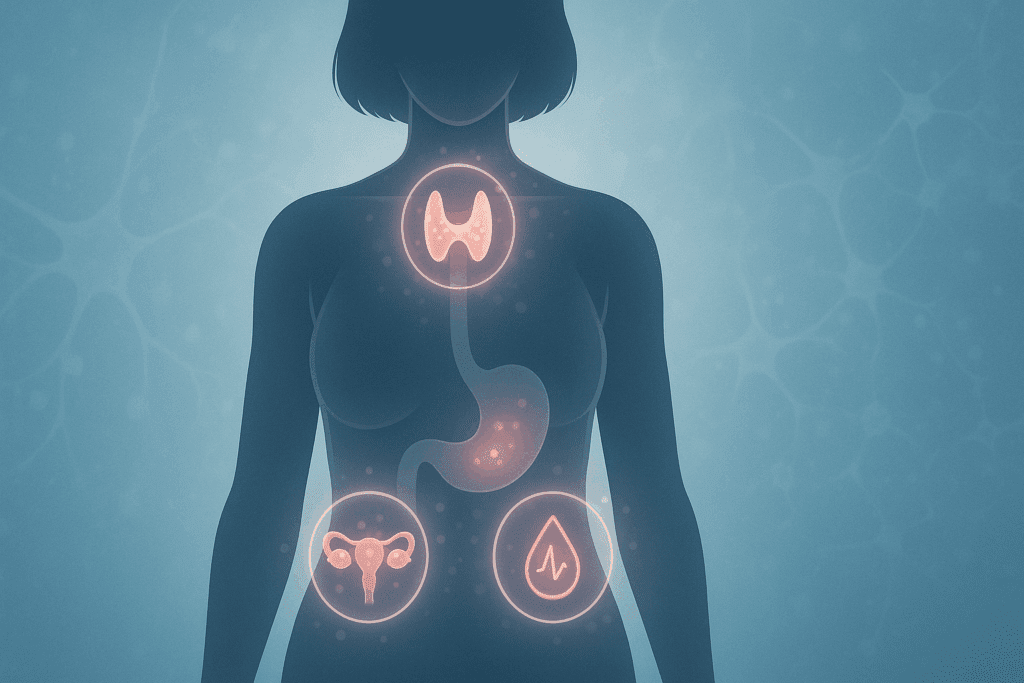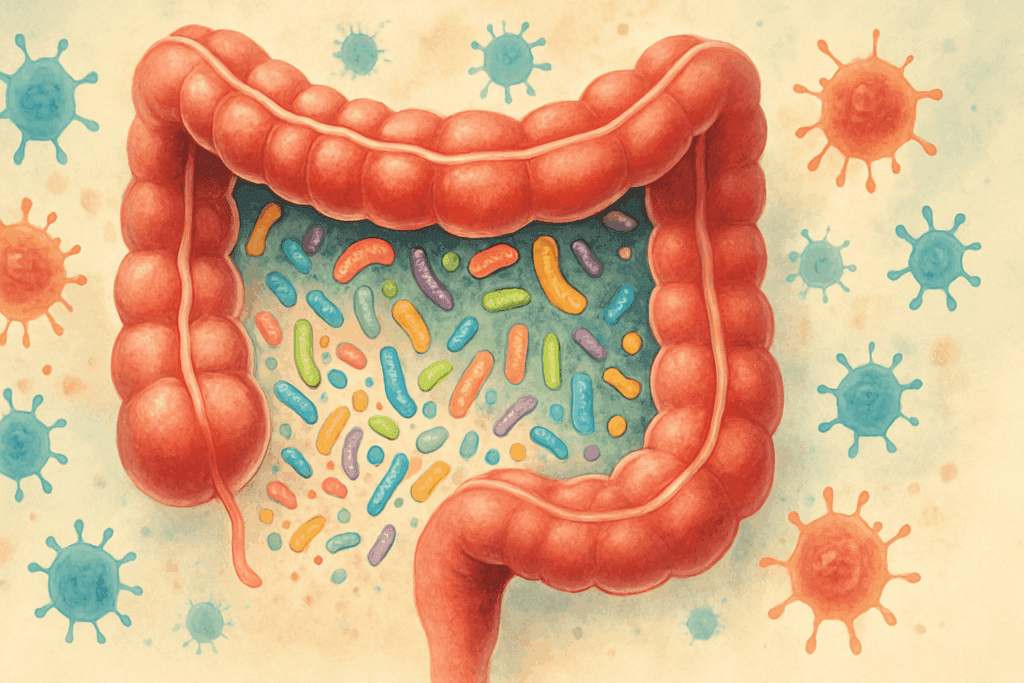For many individuals committed to healthy living, few things are more disheartening than doing everything by the book—eating less, exercising regularly, and tracking progress—only to find that the number on the scale remains stubbornly unchanged. This experience is more common than many realize, and it has left countless people asking the same question: Why am I not losing weight with diet and exercise? Despite the best intentions and consistent effort, weight loss can plateau or fail to begin altogether. While it might be tempting to blame willpower or discipline, the truth often lies deeper within the body’s complex physiological and hormonal mechanisms.
You may also like: Expert-Backed Weight Loss Tips for a Healthier Lifestyle: What You Need to Know for Long-Term Weight Control and Wellness
The reality is that not losing weight, even while working out and eating less, can be a multifaceted issue influenced by underlying medical conditions, metabolic adaptations, psychological factors, and even environmental stressors. If you’ve been struggling to lose weight, or you’re a female working out but not losing weight, it’s time to reframe the conversation around your body’s resistance. Rather than viewing it as a personal failure, consider it a signal worth decoding. Understanding the medical reasons for not losing weight is a crucial step in navigating through the frustration and discovering a healthier, more sustainable path forward.

Metabolic Adaptation and the Body’s Set Point Defense
At the heart of many stalled weight loss journeys lies a phenomenon known as metabolic adaptation. This refers to the body’s innate ability to adjust its energy expenditure in response to caloric deficits. Essentially, when you eat less and move more, your body compensates by becoming more efficient—burning fewer calories for the same activities. This adaptation, while evolutionarily advantageous for survival during times of famine, poses a significant obstacle for modern individuals trying to lose weight.
The concept of a “set point” further complicates matters. This theory suggests that the body strives to maintain a certain weight range, adjusting hunger hormones, energy expenditure, and fat storage mechanisms accordingly. If you’re eating less and sweating more but not losing weight, your body may be defending its perceived ideal weight. These physiological defenses can make it feel nearly impossible to continue losing weight beyond a certain point, especially without medical guidance or metabolic support.

Hormonal Imbalances That Disrupt Weight Loss
Hormones serve as the body’s chemical messengers, and even slight imbalances can have a dramatic impact on weight regulation. One of the most commonly overlooked reasons people experience difficulty losing weight is related to thyroid dysfunction. Hypothyroidism, for example, slows metabolic rate and can lead to fatigue, weight gain, and stubborn fat retention despite dietary and exercise interventions.
Similarly, insulin resistance—a condition often preceding or accompanying type 2 diabetes—can impair the body’s ability to process glucose efficiently, leading to fat storage even in calorie-controlled environments. For women, conditions like polycystic ovary syndrome (PCOS) disrupt hormonal balance and can lead to difficulty losing weight despite rigorous workouts and clean eating. If you’ve been working out with no weight loss and wondering, “why am I not losing weight despite everything?”, testing for hormonal disorders may provide critical insights.

Chronic Stress, Cortisol, and Emotional Load
Stress, both psychological and physiological, can significantly interfere with weight loss efforts. When the body is under chronic stress, it releases higher levels of cortisol—a hormone linked to increased fat storage, especially around the abdominal region. Cortisol not only promotes fat accumulation but can also influence cravings, appetite, and energy levels.
The emotional burden of constantly dieting and exercising without seeing results can create a feedback loop of stress that exacerbates the issue. People often report eating less but not losing weight, unaware that chronic stress is disrupting their hormonal balance and sabotaging their progress. Incorporating stress reduction techniques such as mindfulness, adequate sleep, and restorative practices like yoga may prove more beneficial than adding yet another workout to an already intense routine.
Sleep Deprivation and Its Hidden Impact on Weight
Sleep is a cornerstone of metabolic health, and yet it’s frequently neglected in discussions about weight loss. Inadequate or poor-quality sleep affects the body’s regulation of hunger and satiety hormones—ghrelin and leptin, respectively. When sleep-deprived, ghrelin levels rise, prompting increased appetite, while leptin levels fall, reducing feelings of fullness.
Over time, this hormonal disruption can lead to weight gain and hinder weight loss even when diet and exercise are otherwise well-managed. A person may be struggling to lose weight despite clean eating and consistent workouts simply because they’re not getting enough sleep to support metabolic recovery. Understanding the role of sleep hygiene in weight regulation is a crucial, yet often overlooked, aspect of long-term health.
Nutrient Deficiencies and Their Metabolic Consequences
Another often-underestimated factor in weight loss resistance is the role of nutrient deficiencies. Essential nutrients like magnesium, vitamin D, and B-complex vitamins are critical for energy production, metabolic processes, and hormonal balance. When the body is deficient in these nutrients, it may not efficiently convert food into usable energy or may store more fat as a protective measure.
This can explain why individuals feel they’re eating healthily and in moderation but still face difficulty losing weight. In some cases, supplements may be necessary under medical supervision to correct deficiencies and support optimal metabolic function. Especially for those facing no weight loss after 3 weeks of exercise and improved diet, evaluating micronutrient levels can uncover hidden barriers that are otherwise invisible.

Gut Health, Inflammation, and the Microbiome
The human gut is home to trillions of microorganisms that play a significant role in digestion, immunity, and even weight regulation. Disruptions to gut flora—such as from antibiotics, poor diet, or chronic inflammation—can influence how the body absorbs nutrients, stores fat, and regulates appetite. Emerging research continues to reveal the profound connection between the gut microbiome and obesity.
Individuals who are working out but not losing weight may unknowingly have dysbiosis, or microbial imbalance, contributing to inflammation and weight retention. Chronic inflammation can interfere with insulin signaling, fat metabolism, and energy expenditure. Addressing gut health through a fiber-rich, probiotic-supported diet and reducing processed foods can be a game-changer for those who can’t lose weight despite strong efforts.
Medications That May Cause Weight Retention
Several commonly prescribed medications have side effects that interfere with weight loss or contribute to weight gain. Antidepressants, antipsychotics, beta-blockers, and even some diabetes medications can lead to fluid retention, changes in appetite, or reduced energy levels. Patients often find themselves struggling to lose weight without realizing their medication may be a contributing factor.
It is essential not to stop any medication without consulting a physician. However, discussing these effects with a healthcare provider may open the door to alternative treatments that are weight-neutral or even weight-supportive. If you’re experiencing working out but no weight loss while also taking daily medication, it’s a worthwhile conversation to have.

The Role of Age and Changing Body Composition
Age-related changes in muscle mass, hormone levels, and metabolism can make weight loss more difficult over time. After the age of 30, the body gradually loses lean muscle, which lowers basal metabolic rate—the number of calories burned at rest. For women, perimenopause and menopause introduce hormonal shifts that may lead to increased fat storage and changes in body composition, even without changes in diet or activity.
This is especially relevant for the many women asking, “Why am I not losing weight while dieting and exercising?” or “Why is a female working out not losing weight even with consistent effort?” Recognizing the impact of age on metabolism and adjusting expectations and strategies accordingly is key to staying motivated and healthy. Resistance training, adequate protein intake, and progressive overload become especially important in counteracting age-related metabolic slowdown.
Unintentional Overeating or Underestimating Calories
One of the most common and least talked-about reasons people experience no weight loss after 3 weeks of exercise is the discrepancy between perceived and actual caloric intake. Studies have shown that individuals often underestimate how much they eat and overestimate how much they burn during exercise. This phenomenon, known as caloric misreporting, is particularly easy to fall into when consuming foods labeled as “healthy,” which may still be calorie-dense.
Even with clean eating and regular workouts, weight loss may stall if portion sizes creep up or hidden calories in dressings, beverages, or snacks are not accounted for. On the other hand, excessively restrictive diets can trigger binge-eating episodes or slow the metabolism further, resulting in not reducing weight. A balance between awareness and sustainability is essential for long-term success.

Mental Health and Emotional Eating Patterns
The psychological side of weight management is often underrepresented in mainstream health discussions. Emotional eating, trauma-related patterns, and mental health disorders like depression or anxiety can all play a role in difficulty losing weight. Food may serve as comfort, distraction, or reward, complicating the relationship between hunger and satiety.
When someone says, “I’m eating less but not losing weight,” it may reflect subconscious patterns of emotional eating that aren’t accounted for in daily tracking. Therapy, mindful eating, and compassionate self-awareness can help address these patterns and support healthier relationships with food. Acknowledging that weight is not merely a numbers game but also an emotional journey is vital in breaking through mental and physical plateaus.
The Genetics of Weight Regulation
Genetics undeniably influence weight, metabolism, fat distribution, and appetite regulation. While genetics do not determine destiny, they can make the path to weight loss more complex for some individuals. People who can’t lose weight despite rigorous efforts may carry genetic variations that influence how their bodies respond to different diets and exercise types.
For example, some individuals are more prone to storing fat due to ancestral survival adaptations, while others may metabolize fats or carbohydrates less efficiently. Understanding one’s genetic predispositions through testing may help personalize weight loss strategies and explain why some approaches that work for others may not yield the same results. This can also offer relief and validation to those who feel they are doing everything right but still not losing weight.
When to Seek Professional Help
Persistent weight issues, especially when combined with fatigue, menstrual irregularities, hair loss, or digestive changes, may signal underlying medical problems. Consulting with a healthcare provider for comprehensive lab testing, including thyroid panels, hormone levels, and insulin sensitivity, can uncover hidden causes that are otherwise difficult to detect through lifestyle changes alone.
A registered dietitian or integrative physician can help interpret these findings and design a medically sound, personalized plan. If you’ve been asking, “Why am I not losing weight with diet and exercise?” and have ruled out behavioral causes, it’s time to investigate the physiological aspects with professional support. Medical reasons for not losing weight are real, and acknowledging them can pave the way toward compassionate and effective solutions.
Frequently Asked Questions: Why Am I Not Losing Weight with Diet and Exercise?
1. Could my gut microbiome be a hidden reason I’m not losing weight even with clean eating?
Absolutely. The gut microbiome has a significant influence on metabolism, insulin sensitivity, and inflammation. When the microbial balance in your digestive system is disrupted, it may lead to impaired nutrient absorption and fat storage, making weight loss more difficult. For those who are eating less but not losing weight, a compromised microbiome may be an unrecognized factor. Consuming a diverse range of plant-based fibers and fermented foods like kimchi or kefir can help restore microbial diversity. If you’re struggling to lose weight despite clean eating, testing your gut health through a qualified practitioner may reveal crucial information, especially if you’re not reducing weight over time.
2. How does overtraining affect weight loss resistance in people already working out intensely?
Overtraining, particularly without adequate recovery, can lead to chronic inflammation and elevated cortisol levels, both of which interfere with fat metabolism. People often assume that more exercise will lead to faster results, but working out without rest can backfire. If you’re working out but not losing weight, especially with signs of fatigue or sleep disturbances, overtraining may be playing a role. For women especially, the scenario of a female working out not losing weight may be linked to insufficient rest and hormonal disruption. Strategic rest days and periodization of workouts can reset your body and improve long-term outcomes for those not losing weight while working out.
3. Is water retention a possible explanation for no weight loss after 3 weeks of exercise?
Yes, especially during the early weeks of a new fitness regimen. As muscles repair and adapt to exercise, they retain water to support inflammation and glycogen storage. This can mask fat loss on the scale, making it appear as if you’re not reducing weight despite significant effort. It’s a common reason why people report no weight loss after 3 weeks of exercise, even when they are consistent. Monitoring body measurements and how clothes fit can give a clearer picture of progress for those struggling to lose weight early in their journey.
4. Can eating too little be a reason why I can’t lose weight despite dieting?
Paradoxically, yes. Severely restricting calories can slow metabolism and increase the body’s tendency to store fat. If you’re eating less but not losing weight, it may be because your body has entered a conservation mode, reducing energy expenditure to preserve fat stores. This is a common problem for those asking, “Why am I not losing weight while dieting and exercising?” Eating below your basal metabolic rate for extended periods can make your body resistant to change. A better approach may involve structured refeeding or increasing calories slightly to stimulate metabolic activity.
5. How does perimenopause contribute to difficulty losing weight for women?
Hormonal changes during perimenopause often disrupt metabolism, insulin sensitivity, and fat distribution. These changes make it more difficult for many women to respond to traditional diet and exercise plans. If a female is working out but not losing weight, perimenopausal hormone shifts such as declining estrogen and increasing cortisol may be at play. This isn’t just about willpower or discipline; it’s a physiological reality. Adjusting workout intensity, emphasizing resistance training, and managing stress more deliberately can help navigate this stage when you’re unable to lose weight through previous methods.
6. Can environmental toxins impact why I’m not losing weight with exercise and diet?
Yes, research increasingly links exposure to endocrine-disrupting chemicals (EDCs) to metabolic dysfunction. These chemicals, found in plastics, personal care products, and even food packaging, can mimic or block hormone signals. For individuals asking, “Why can’t I lose weight despite doing everything right?”, toxic burden could be an overlooked factor. While eliminating all exposure isn’t possible, switching to glass storage containers, choosing organic when possible, and avoiding synthetic fragrances are good starting points. For those not losing weight while working out, detox-supportive strategies may complement lifestyle changes.
7. Is weight set-point theory the reason why I can’t seem to drop more pounds despite effort?
The body may defend a certain weight range, adjusting hunger hormones and metabolic rate to keep you near your “set point.” This may explain why you’re working out with no weight loss even after significant effort. Set-point resistance isn’t absolute but can require strategic intervention, such as cycling calorie intake or focusing on body recomposition rather than pure fat loss. If you’re experiencing trouble losing weight at a specific plateau, consider shifting focus to strength gains and body composition. Many people say “I can’t lose weight” when in fact they are gaining lean muscle while burning fat, which the scale alone won’t show.
8. Why am I still not losing weight even though I track everything I eat?
Tracking can be an excellent tool, but it’s not foolproof. Hidden calories from condiments, cooking oils, beverages, and even healthy snacks can add up. For those eating less and sweating more but not losing weight, small inaccuracies in tracking may create a calorie surplus without realizing it. Additionally, psychological factors such as “earned indulgences” after workouts may unknowingly lead to overcompensation. If you’re asking “why am I not losing weight with exercise and diet?” despite careful tracking, it may be worth having a professional audit your logs or using a food scale to double-check portions.
9. Are there psychological barriers that explain why I’m not reducing weight even with full effort?
Absolutely. Unconscious behaviors, emotional triggers, and ingrained habits can influence eating and lifestyle choices in ways we don’t always recognize. If you’re struggling to lose weight despite being diligent, unresolved emotional stress or negative body image may be contributing. Self-sabotage, perfectionism, or all-or-nothing thinking can make sustainable progress difficult. Exploring the emotional relationship with food and body image through cognitive behavioral therapy (CBT) or mindfulness practices can be transformative. These tools can especially benefit those who feel they can’t lose weight and are emotionally worn out from constant effort.
10. What should I do if I’ve tried everything and I’m still unable to lose weight?
First, recognize that weight loss resistance is often complex and deeply individual. If you’re truly eating less, exercising consistently, and still not losing weight, it’s time for a medical evaluation. There are many medical reasons for not losing weight, including hypothyroidism, PCOS, insulin resistance, or even undiagnosed sleep apnea. Partnering with a medical professional for comprehensive testing can uncover causes that aren’t apparent on the surface. For people working out with no weight loss, or those who report not losing weight while working out despite discipline, personalized medical care can reveal what generalized advice cannot.
Conclusion: Understanding Why You’re Not Losing Weight with Diet and Exercise Is the First Step to Real Change
Reaching a weight loss plateau or not seeing progress despite significant lifestyle changes is one of the most frustrating experiences in personal health. Yet, the repeated question—”Why am I not losing weight with exercise and diet?”—should not be met with shame or self-blame. Instead, it should be viewed as a cue to look deeper. From metabolic adaptation and hormonal imbalances to medication effects and psychological patterns, there are many legitimate medical reasons for not losing weight that deserve attention and empathy.
For those eating less but not losing weight or working out with no weight loss, the issue is rarely a lack of willpower. Rather, it is often a complex interplay of factors that require a more holistic, medically informed approach. Addressing difficulty losing weight with the guidance of health professionals, evaluating possible medical conditions, and taking a patient, science-backed approach can help you navigate this challenge with clarity and hope. Remember, the road to sustainable health isn’t always linear, but understanding your body’s signals is a powerful first step toward long-term well-being and success.
Further Reading:
The Real Reason You’re Not Losing Weight In spite of Exercising
14 Common Reasons You’re Not Losing as Much Weight as You Expected
What could be the reasons for not losing weight even after following a weight loss program?


